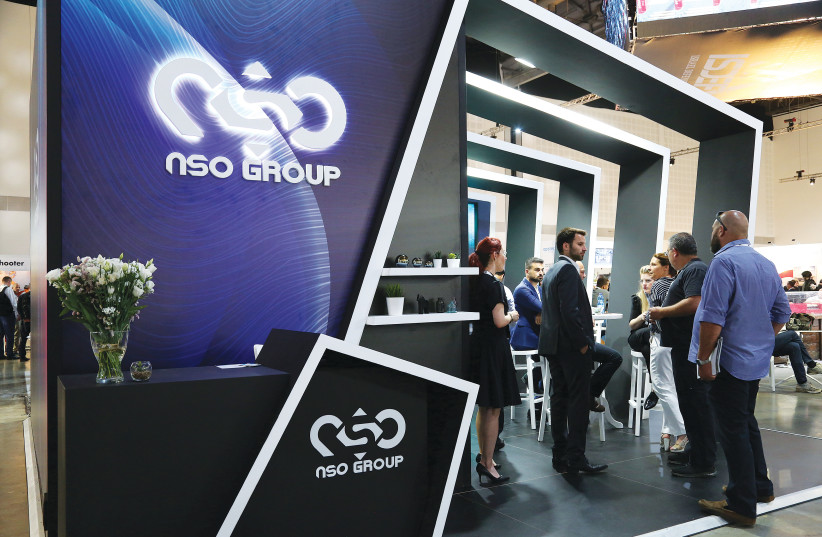Although NSO Group is just one of a bunch of top Israeli cyber firms and Shalev Hulio is one of dozens of important Israeli cyber CEOs, none of his counterparts took over the news in 17 major media outlets on several continents all at once like he did this year.
A serial entrepreneur and investor who has founded several hi-tech companies, the 39-year-old Hulio was described by the Financial Times as “pudgy, indiscreet... 007 obsessive Israeli tech nerd who has found himself at the intersection of big secrets and big money.”
For several years, NSO has been part of the top tier of Israel’s cyber offensive private sector for hacking cell phones of terrorists and other organized crime operatives.
See No. 48: Unorthodox Star
See No. 50: France's Trailblazer
See full list
Download full magazine
See 2020's list
During that time, Israel also used the chip of providing NSO’s and others’ technologies to countries like Saudi Arabia, the United Arab Emirates, Bahrain and Morocco in order to improve ties and advance normalization.
In July, the Pegasus Project accused NSO and Hulio of enabling some of these Middle Eastern and other non-democratic clients to spy on prime ministers, journalists and human rights activists, with French Prime Minister Emmanuel Macron being at the top of a list of potential targets from some of NSO’s clients.

Whether NSO is responsible for what its clients do or don’t, whether the Pegasus Project’s accusations applied to NSO or to others, who was behind the Pegasus Project and whether NSO’s profile among Arab states and non-democratic states needs to be lowered are all good questions.
However, the bottom-line is that Hulio and NSO have been and will continue to be at the center of the discussion and on the frontlines of Israel’s cyber offense in the private sector.
When Amnesty International sued to have NSO’s export license revoked in the Tel Aviv District Court in 2019, The Jerusalem Post witnessed around two dozen Defense Ministry officials appear to convince the judge (successfully) how important it was to national security to keep the firm running.
In and of itself that gives a clear indication of NSO and Hulio’s staying power.
